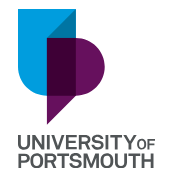About Health Psychology Msc in University of Portsmouth
If you want to build on your health psychology knowledge to more fully understand health and health behaviours; to better help patients better manage their long-term illness or recovery; or to help healthcare professionals improve their provision – then our MSc Health Psychology course is for you.
On this course, you'll get a thorough grounding in the main areas (practice, theory and research) of health psychology. You'll learn how mental, emotional and social factors can affect physical wellbeing, and how to prevent them doing so. You’ll also learn how a patient's mental and emotional state is affected by an illness and their recovery from it – and develop the skills and knowledge to support them.
We recognise the value of work experience and so a work experience placement is a central part of the course. We expect students to complete 100 hours of work placement activity and will support students in identifying suitable opportunities.
And if you'd rather dive straight into your career once you graduate, you'll also be ready for work in areas such as commercial research, smoking cessation, health promotion and chronic illness management.
Careers and opportunities
What can you do with a Health Psychology degree?
After the course, you could go on to Stage 2 training to become a Chartered Health Psychologist. You could also:
- work in the NHS or other healthcare-related services – for example, smoking cessation, health promotion, mental health and chronic illness management
- undertake research or take a teaching position in Higher Education
- do a PhD in a related area
- join a clinical research organisation and get involved in setting up and carrying out research projects
- get a place on a clinical training course or other related training such as Cognitive Behavioural Therapy and IAPT (Increasing Access to Psychological Treatment)
Our Careers and Employability service can also help you find a job that puts your skills to work in the industry, when you finish the course.
Other graduates have set up successful businesses with help and support from the University.
After you leave the University, you can get help, advice and support for up to 5 years from our Careers and Employability service as you advance in your career.
Academic qualification equivalents
-
For entry to our Master's programmes, you will generally need to have a Bachelor's degree with at least 2nd Class Honours to be considered.
You may be admitted to Master's programmes with a lower level degree if you have work experience relevant to the degree applied for. Find out more about Recognised Prior Learning.
English language requirements (one of the below):
- IELTS: A minimum of IELTS band 6.5–7.0, with no component below 6.0.
- TOEFL iBT: For most of our Master's degrees, you need a score of 91 with a minimum of:20 in Reading 19 in Listening 21 in Speaking 20 in Writing.
- PTE: At least 61 points, with a minimum of 54 in each component
University of Portsmouth Highlights
| Type of Institution |
Public |
| Campus Setting |
Urban |
| Endowment |
9.9 Lakhs GBP |
| Number of Campuses |
2 - Langstone Campus and University Quarter |
| Percentage of International Students |
26% |
| Total number of Professors |
1,126 academic and Research staff |
| Student Satisfaction Rate |
Secured 88% Student Satisfaction |
| Graduate Job Rate |
97.5% |
| International fee |
£11,250 per annum |
| Type of Academic Programs |
UG, PG, Ph.D., research and Pathway Courses |
| Mode of Program |
Full time |
| Average Graduate Salary |
£13,900 - £15,900 a year |
University of Portsmouth Average Tuition Fees And Other Expenses
| Expenses |
Estimated cost in pounds |
| Undergraduate Fee |
£13,900 – £15,900 approx |
| Postgraduate Fee |
£13,900 – £15,900 approx |
| Accommodation |
£5000 approx |
| Cost of living |
£7000 - £10,000 approx |
| Placement year fee |
£2400 |
